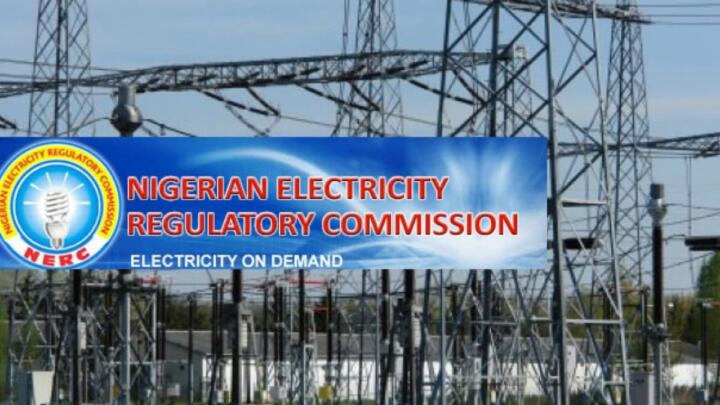The Nigerian Electricity Regulatory Commission (NERC) has disclosed that a total of 148,077 electricity consumers across the country were metered within May and June 2025, as part of ongoing efforts to close the country’s huge metering gap and improve transparency in electricity billing. The report comes amid rising public concern over estimated billing, which continues to generate complaints among unmetered customers.
According to NERC’s latest statistics, the new installations bring the number of metered customers closer to the commission’s target under the Meter Asset Provider (MAP) and National Mass Metering Programme (NMMP). Despite progress, however, millions of households and businesses remain unmetered, relying on estimated billing that is widely criticized as unfair and exploitative.

Industry stakeholders have welcomed the commission’s latest update but emphasized that the figures still fall short of what is required to bridge Nigeria’s metering gap, which is estimated at over 7 million customers. Analysts note that while the rollout of 148,077 meters within two months represents measurable progress, at the current pace, it may take years before all electricity consumers are covered.
The power sector regulator has consistently stressed that closing the metering gap is central to ensuring accountability in the electricity value chain. Meters not only guarantee fair billing but also help distribution companies (DisCos) track energy consumption more effectively, reduce technical and commercial losses, and boost revenue collection. For customers, meters eliminate arbitrary billing practices and improve trust in the sector.
A breakdown of the report shows that the installations were spread across the country’s 11 distribution companies, though some performed better than others. Lagos and Abuja recorded some of the highest figures, while certain northern states lagged behind due to logistical and operational challenges. NERC noted that efforts are being made to standardize procurement processes and address bottlenecks slowing down the meter rollout.
The issue of funding also remains a concern. Under the NMMP, the federal government initially provided intervention funds to accelerate metering, but subsequent phases have faced delays due to financing constraints and foreign exchange challenges. With most meters imported, currency volatility has increased costs, making it more difficult for DisCos to procure and distribute meters at scale.
In response, NERC has been exploring partnerships with local manufacturers to boost domestic production capacity and reduce reliance on imports. Several indigenous firms have already been licensed to produce meters, and the commission insists that scaling up local manufacturing is the sustainable path toward achieving universal metering.
Customer advocacy groups, however, argue that the pace of deployment remains inadequate. They insist that as long as millions of customers remain unmetered, the problem of estimated billing will persist, undermining consumer confidence in the sector. Many also highlight cases where customers who have paid for meters under the MAP scheme have experienced long delays before installation.
On the other hand, DisCos argue that they face significant financial constraints, with many operating under liquidity pressure. They say expanding metering at a faster pace requires additional government support, improved tariff regimes, and reduced collection losses. Industry experts stress that without addressing these systemic challenges, achieving total metering coverage will remain a struggle.
NERC’s intervention in publishing metering statistics every quarter has been praised for improving transparency in the sector. By tracking and publishing figures, the regulator not only ensures accountability but also places pressure on DisCos to accelerate their rollout efforts. The recent announcement of 148,077 meters is part of this broader push to ensure regular public updates on sector performance.
Beyond improving billing transparency, experts point out that metering is critical for achieving broader power sector reforms. With accurate data from meters, regulators can better monitor consumption patterns, ensure proper tariff adjustments, and develop policies aligned with actual energy use. For households and businesses, the availability of meters provides a level of predictability that encourages more efficient energy consumption.
The federal government has also reiterated its commitment to universal metering as part of its broader energy reform agenda. The Ministry of Power has maintained that increasing metering coverage is not only about fairness to consumers but also about improving investor confidence in the electricity sector. With reliable consumption data, investors are more likely to support infrastructure upgrades that expand generation and distribution capacity.
Going forward, stakeholders believe that a more aggressive and coordinated approach is needed to bridge the gap. This includes ensuring that local manufacturers receive adequate support, expanding funding for meter acquisition, and strengthening regulatory oversight to prevent customer exploitation. Consumer groups have also urged the regulator to impose stricter penalties on DisCos that fail to meet metering targets, stressing that enforcement is key to accountability.
While the rollout of 148,077 meters within May and June marks tangible progress, the enormity of Nigeria’s metering deficit means that consistent and large-scale interventions are still required. For many Nigerians, the priority remains clear: access to affordable, reliable, and transparent electricity billing that reflects actual consumption. Until the metering gap is significantly reduced, challenges around trust and efficiency in the power sector will continue.
As NERC works with DisCos, the federal government, and private investors to sustain momentum, the coming months will determine how quickly the commission can translate its targets into tangible improvements for millions of electricity consumers across the country.
Support InfoStride News' Credible Journalism: Only credible journalism can guarantee a fair, accountable and transparent society, including democracy and government. It involves a lot of efforts and money. We need your support. Click here to Donate
